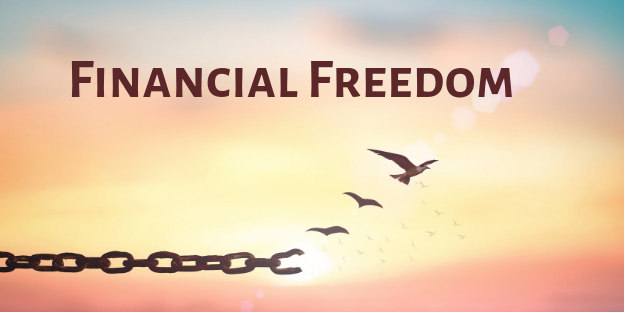Financial freedom is everyone’s dream but very common to articulate. Financial freedom gives relief from the daily grind of earning money that dominates our lives. It has many degrees.
There are people with large inheritances who may not work. There are those whose burden gets shifted to us, the ultimate taxpayer, taking the entire working life to reach the last stage, where you do not have to work for earning money till your lifetime.
We think of financial freedom as having the ability to make certain choices without worrying about being able to financially sustain yourself. To reach true financial freedom, you usually need a plan to get there. And this is where we can tend to get stuck.
Levels of Financial Freedom
1. Dependent
At this level, things aren’t easy and you might be unhappy with your financial position.
You’re likely financially dependent on others. And at this state, you can probably only continue on in this way in the short term.
2. Solvent
Solvency or “survival” is when your outgoings and expenses are lower than your earnings. In this stage, you’re likely able to meet your financial commitments, pay all your bills and not rely on someone or something to help you cover your expenses.
3. Stable
When you have six months of living expenses paid and have no consumer debt. Once you’re able to consistently meet your financial commitments, have paid off some debts, and you’re able to keep your expenses down, then you can start saving. First for your emergency fund, then for your longer term growth.
But you’re probably not debt free yet. And that’s okay. You may still have some significant debts like paying your HELP student loan debt or a mortgage, which you’re chipping away it.
4. Security
Once you have built your emergency fund, we think that it’s time to consider investing. Hopefully, when you have built a solid investment base, you aren’t relying on your income to cover your basic expenses. You may successfully be building and managing your wealth, and be on the path to earning your financial freedom.
5. Financial Independence
When you can live off your investment income, and therefore, working is optional. At this point, you should have made solid, long term investments. And your investment earnings are enough to cover your current lifestyle. At this stage your good investments should literally paying dividends.
6. Freedom
This is the stage people often dream about. You can afford the basics, but should be able to afford comforts and luxuries too.
Here, you may be able to take bigger risks and opportunities. Now you can buy that lakeside holiday home, turn your interior design hobby into a career and travel abroad regularly.
7. Abundant Wealth
When you’ll have more money than you’ll ever need clearly, there is a little bit of padding. You should have enough investment income that you have more than you need. Here your focus should be on sensible stewardship of this wealth for any beneficiaries.
It will take time to realise financial independence, but the peace of mind, confidence and control over your destiny, will be well worth it.
The simple fact is that if we save and invest with a modicum of planning, lesser degrees of financial freedom can be achieved earlier in life, and that can be just as good as achieving higher levels later. Moreover, as the Indian economy has changed, this has become more important. India is clearly passing through a jobs crisis. There are any number of people in the urban middle-class who have suddenly lost their jobs. Youngsters are finding their first jobs difficult to find, or have to take low quality employment. Middle-level executives are being shunted out of their employment because employers think they can be replaced at lower cost.
For salary-earners, getting even a mild form of financial freedom early in life is more important now than it was a decade or two ago. If one can reach level four by the age of 35 or level five by 40 that is a great thing to achieve. I am not going into the mechanics of doing this that’s what I do most of the time but I am simply pointing out the great value in thinking about this systematically, setting a target, and working towards it.
Clearly, there’s a little bit of padding here, just to reach the number seven. However, as you read through the levels you will very likely agree at the general progression of the idea. Moreover, the first step which all about understands and introspection is actually very important. As we read through the list, few of us will think realistically of reaching the highest levels, but that does not mean that thinking about financial freedom systematically is useless.

